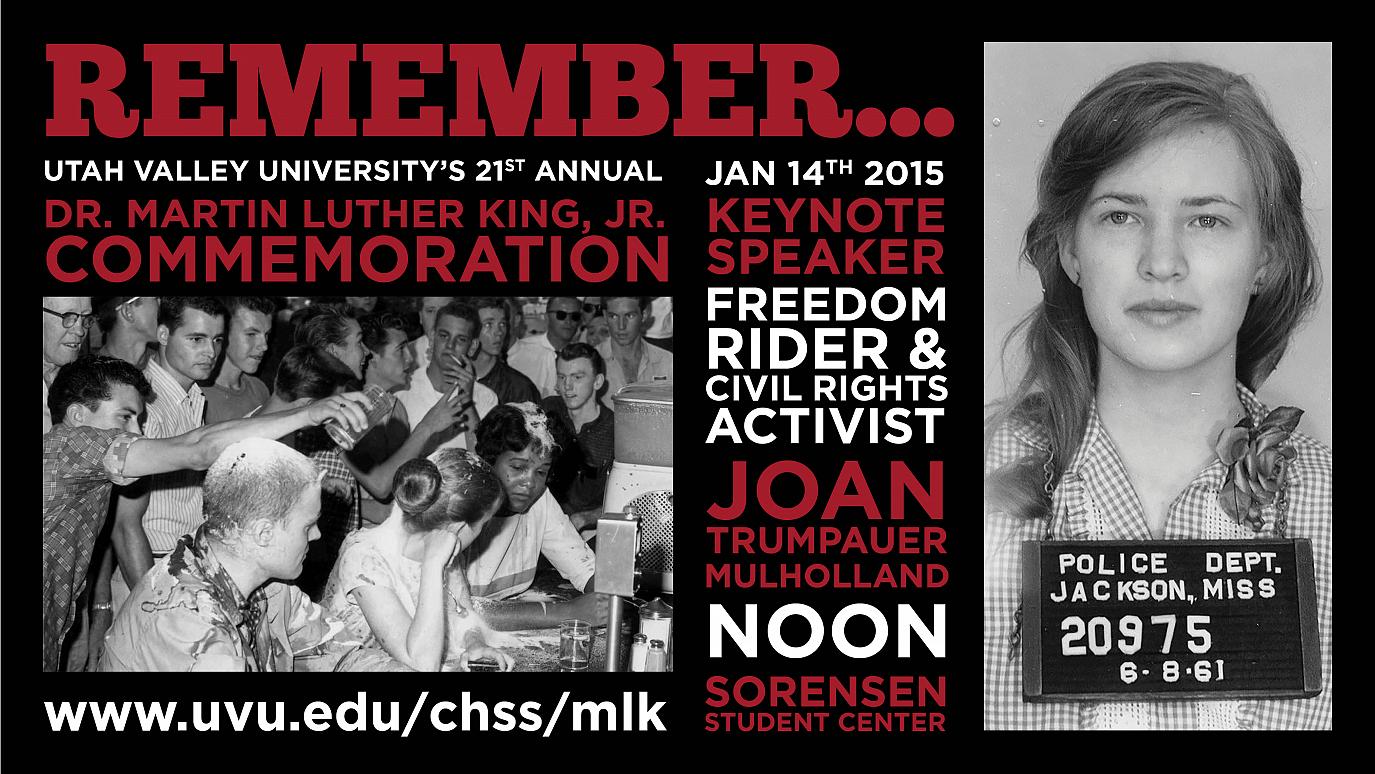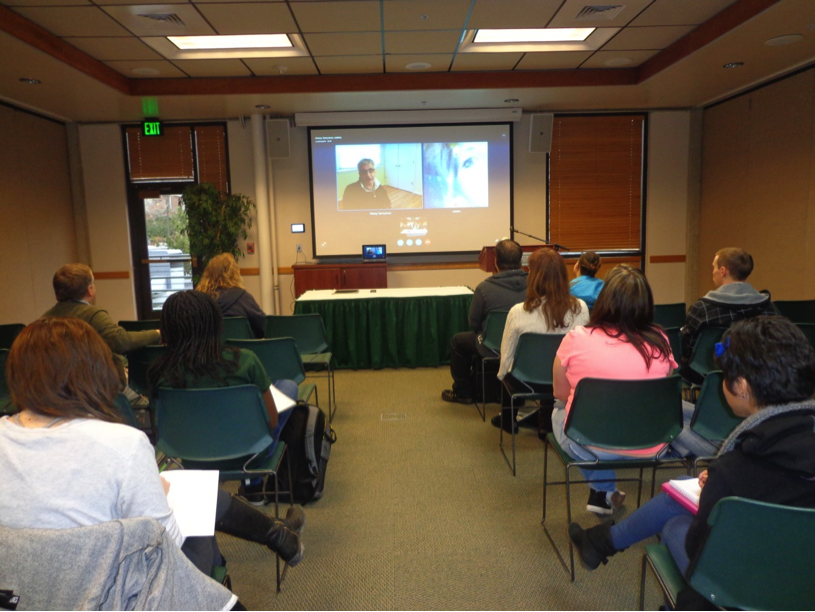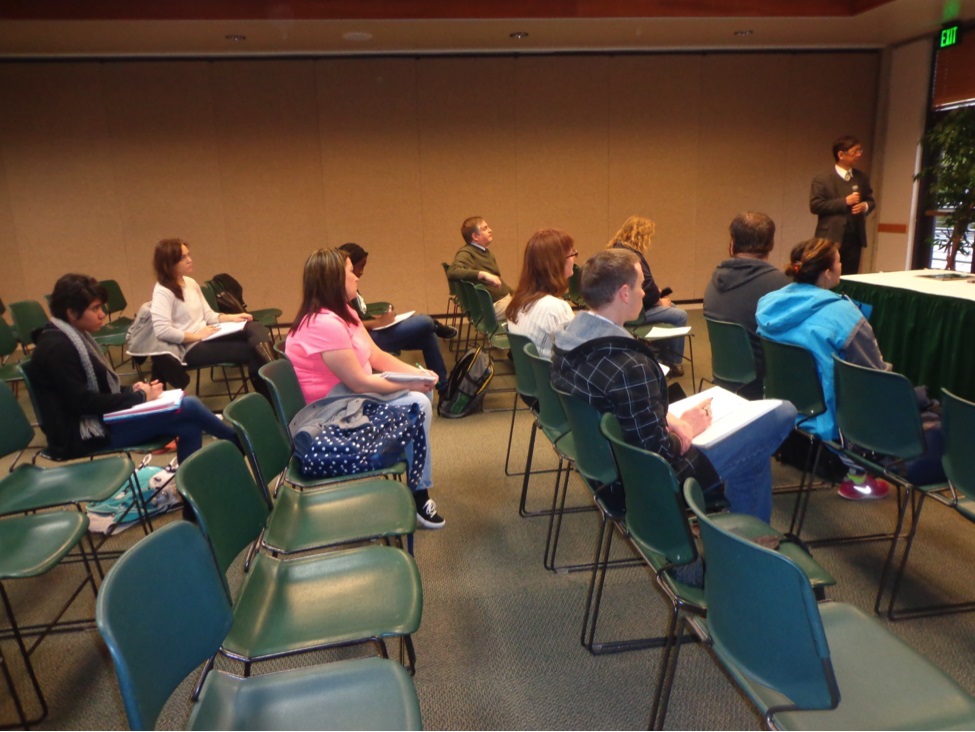
http://www.uvu.edu/chss/mlk/commemorations/
Utah Valley University and the Utah International Mountain Forum are fortunate to work together with Andrey Sakharov Foundation and its President, Alexey Semyonov, on a several initiatives including hosting regular annual Skype-video session regarding the status of human rights in Russia and nations of the former Soviet Union as a part of MLK commemorations at UVU. This year the Andrey Sakharov Foundation presented a new project just finished by Voice of America named “Parallels” about the history of the Human Rights Movements in former Soviet Union. Below we post opinions from several UVU students presented during Skype session organized by Alexey Semyonov, President of Andrey Sakharov Foundation and Natella Boltyanski, from the Echo Moskvy radio company
Deena Ainge, UVU Student, President of the Sustainable Mountain Development Club
***
Skype Session With Russian Activists
Russian human rights activists, Alex Semyonov and Natella Boltyanskaya, spoke to students via Skype, on Wednesday, January 14, 2015 at the Utah Valley University Martin Luther King Commemoration. Semyonov is the president of the Andrei Sakharov Foundation, an organization instituted for the development of democracy and civil reform in Russia and other post-Soviet nations. Ms. Boltyanskaya is a folk-singer, journalist, radio-host, and also an advocate for Russian political change. The topic of discussion was Martin Luther King’s impact on human rights in Russia.

Alexey Semyonov, President of Andrey Sakharov Foundation Speaks About Human Rights in Russia
Alex Semyonov began by explaining that political dissidence in Russia has historically been expressed through art, music, and literature. He said the dissident movement was often portrayed in fiction “carrying a universal humanist image.” Boltyanskaya agreed that folk-music also carried political messages, enabling artists to express ideas without the censure that open discontent would receive.That being said, many times Russian artists have also fallen victim to political censure. Semyonov spoke of works of political art that were completely destroyed when Russian nationalists called in bulldozers to level the exhibition. Other artists became imprisoned for expressing dissidence through their work.
In the 1960’s, Socialist Realism, or the positive portrayal of communist life in the Soviet Union, became popularized by the Communist government, and today propaganda continues to contribute to President Vladimir Putin’s popularity in Russia. Boltyanskaya said that the Russians are told that the “whole world is against them and wants to cheat them.” She reported that Putin publicly regrets the destruction of the Soviet Union. Boltyanskaya, who contributes to the radio-program Voice of America, reported that in some circumstances in Russia, you cannot even mention the program without repercussions. Russians are told to be afraid of Western influences.
When the guests were asked their opinion on current homosexual rights issues in Russia, Ms. Boltyanski replied emphatically, “It’s awful!” Semyonov explained that while homosexuality is not against the law in Russia, it is considered to be a “psychological deviation,” so sexual minorities are denied basic rights, such as driver’s licenses. Boltyanskaya expressed regret that under Putin, attitudes toward sexual minorities had regressed compared to twenty years ago, when Boris Yeltsin was in office.

During the Skype-Session About Human Rights in Russia
As the session concluded, the discussion returned to the original question regarding Martin Luther King’s possible influence in Russia. While the guests were unsure of his direct influence, one theme that stood out was humanity’s need to learn from history, as to not repeat mistakes of the past.
Boltyanskaya explained that when Stalin died, it was several years later before Russians began to understand the extent of his crimes. Ms. Boltyanskaya said, “When you know something, you have equipment to avoid mistakes.” She stressed the great need to increase internet access to Russians, in order to dispel anti-democracy propaganda.
This week Americans remember Martin Luther King’s legacy, as to not take for granted the sacrifices made during the United States’ own civil rights movement, nor be complacent about civil rights that have yet to be gained. Although Russians may not be able to pinpoint specifics, Martin Luther King’s contribution to American democracy can be felt worldwide, as the United States stands as a beacon of democracy. Lessons learned from Russian civil rights activists, Alex Semyonov and Natella Boltyanskaya should also inspire Americans, as the campaign for greater human rights around the world becomes an increasingly global effort.
Megan Raines, Political Science Student at UVU
***
Skype Session with Russia as a Part of the MLK Commemoration
Today I had the pleasure of attending a Skype session with Alex Semyonov, President of the Andrei Sakharov Foundation, and Natella Boltyanski, Correspondent of Voice of America in Moscow. The topic of our discussion was the parallels between the Civil Rights movement in the United States, and the Human Rights movement in Russia.
Alex and Natella began by speaking to us about a project that’s very near and dear to them, one in which they’re producing 15 minute long documentaries about the history of Russia, in which both Alex and Natella hope to show Russians that they can avoid repeating the mistakes made in the past by educating themselves on the factual history of Russia, as opposed to the sterilized view of Russian history many Russians grew up learning. The documentaries are currently in Russian, but will be available in English as of February 2015. Natella detailed some of the past advocates of Civil Rights in Russia, and how the Russian government tried to silence their critics by sending them into exile.
One of the individuals that attended the Skype sessions asked Alex and Natella about the various forms of art and expression that has been used by the Russian dissidents during their struggle for Civil Rights, and how they combated the Russian government’s propaganda. Natella and Alex explained that art as a vehicle for free speech is still under threat today, and gave an example of a famous work that was destroyed by Nationalists who viewed the art as being dangerous or unpatriotic.
I asked Alex and Natella about the Russian law which prohibits the promotion of the homosexual lifestyle in Russia, I specifically asked about their opinions on the law, and what impact the law will have on civil rights in Russia. Natella stated that she hated the law, and felt it had no place in society. That the government had no right to tell anyone who they can or should love. She gave several examples of homophobia, including a story of former Russian President Boris Yeltsin’s reaction to being informed that a member of his cabinet was gay. President Yeltsin stated that he couldn’t have that man representing him or the Russian government, because the government is a reflection of the Russian people, and should reflect the best attributes of their citizens. Natella also gave an example of an official conducting an investigation on school teachers, and exposing 4 or 5 teachers as gay, and getting them fired. Alex explained that in Russia, the government view homosexuality as a mental defect, and thus, homosexuals aren’t allowed to have driver’s licenses due to their mental defect. Both of them painted a grim picture for homosexuals in Russia.
At the end of the Skype session Natella asked those in attendance if we knew of any Americans who had played a role in the fight for human rights in Russia. Nobody in attendance was able to answer that question, so it will be interesting to look into that topic, and prepare myself in case I get another opportunity to speak with Natella or Alex again.
Jason Linde, UVU Student
***
Notes from Skype Session with Alex Semyonov, President of Andrei Sakharov Foundation And Natella Boltyanski, Correspondent of Echo of Moscow.
Events in Russia, according to Natella Boltyanski are repeating history. Boltyanski is a correspondent for Echo of Moscow, a broadcast radio station that still provides free speech information to Russia and former Soviet countries, and can be found on the internet as well. She began talking about the parallels between current events and events of the past, during the Cold War and said there are currently violations of human rights and activists are being imprisoned just as they were during the seventies. She mentioned Natan Sharansky; a Soviet born Jewish/Israeli human rights activist who was charged with spying and imprisoned for thirteen years, and other past and present activists who have been imprisoned. She talked about the responsibility of individuals to share information, if you know something; you must pass that information on. She talked about restrictions that are being placed on speech and said there were words she was saying, things that she spoke about on Voice of America that she was not supposed to say on Russian radio.
She spoke of the Russia/Ukraine conflict that began when Ukraine began moving farther from Russia and closer to the European Union. She mentioned actions by the Russian government reflect Cold War politics.
A question about the part that art has played in Russian human rights and how art effected the human rights movement and how artists also became dissidents in past human rights movements.
The question about the denial of gay rights and a move toward denial of basic rights including banning transgendered individuals and homosexuals drivers licenses. Boltyanski said that the government document classified those conditions as mental disorders that made driving a car dangerous.
It was startling to realize there was not anyone in the audience who could mention and former Soviet dissidents. The poet and author Joseph Brodsky was mentioned by Boltyanski, as well as Andrei Sakharov. She asked the audience if they could name any other dissidents other than those she spoke of. It was difficult for me to come up with any names, and it became very clear why a class in Russian/Soviet history and the history of human rights in Russia is very important. I grew up during the height of the Cold War, and American History was as much propaganda as I was told Russians were being taught. I knew of some of the artists, Brodsky, Rostropovich, and Solzhenitsyn. In 1987, after Brodsky won the Nobel Prize for Literature, I went to a local library to check out his books because I had a love of Russian authors and books, and the library had nothing at all by Brodsky. I was furious, Brodsky had just won the Nobel. That was, and still is indicative of the lack of information Americans have about the history of Russia and the Soviet Union and the fight for human rights that has taken place.
Deena Ainge, UVU Student, President of the Sustainable Mountain Development Club
***

